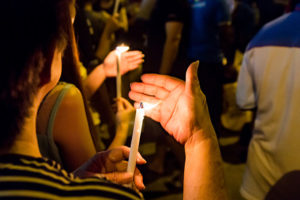 Your church can make a difference during the holidays. Church calendars are filled with meals, plays, candlelight services, and caroling. Church members’ schedules include family gatherings, school events, and church outings.
Your church can make a difference during the holidays. Church calendars are filled with meals, plays, candlelight services, and caroling. Church members’ schedules include family gatherings, school events, and church outings.
With all the events already planned with seemingly no time to spare, how can you better connect with the young adults in your community during this Christmas season? The holidays are a great time for your church to be strategic about engaging young adults.
Young adults in your community statistically will have a different holiday season than you might expect. With the transitional nature that comes with being a young adult, the holidays are not always a joyful time.
While Barna Research notes that most adults view the Christmas season as a religious time (70 percent), many young adults spend their holidays isolated from the sense of community and purpose they desire. What factors play a role into the disconnect many young adults may feel during this time of year?
FAMILY
Young adults are, many times, physically distant from their families during the holiday season. With some having to work or finding it hard with finances to make the trip back to family, they will spend the holidays separated from their normal family traditions. Churches can engage those who do not have family physically close in on-campus and off-campus activities.
The rise of broken families continues to play a factor in the isolation of young adults in your community, as well. With many of your young adults coming from non-traditional homes, the baggage that comes with trying to balance split family gatherings leads many to detach themselves from the community they once had.
Loneliness is a rising issue that causes many to feel disconnected and uncared for. Churches can provide healthy, multi-generational relationships that many young adults have never experienced before.
The rise of single adults causes a unique dynamic for many young adults in your community. With the constant pressure from family, many single adults dread the tirade of questions that accompany holiday gatherings.
Feelings of inadequacy, failure and incompleteness plague many young adults who question why they cannot find the romantic relationships many others around them may have. According to the Bureau of Labor and Statistics, single adults now outnumber married adults over the age of eighteen.
With the average age of first-time marriage rising to thirty years old in the state of Tennessee, many of the young adults in your community would fall into this category.
Not every connecting point activity has to be on the church calendar. Churches can equip their members to invite those disengaged and isolated to join them in their family gatherings. Marketplace discipleship can foster natural relationships that many young adults desperately desire this holiday season.
FUNK
 Young adults experience a seasonal funk that accompanies loss and isolation. Loss of loved ones is one of the main causes that makes the holiday season difficult for many adults. According to the US Surgeon General, fifty percent of all adults say they are lonely during the holidays.
Young adults experience a seasonal funk that accompanies loss and isolation. Loss of loved ones is one of the main causes that makes the holiday season difficult for many adults. According to the US Surgeon General, fifty percent of all adults say they are lonely during the holidays.
The American Psychiatric Association would support this by citing that adults are five times more likely to say their stress level increases during the months of November and December.
This stress induced sense of loneliness leads to an increase in alcohol and substance abuse and technology usage. Churches can provide healthy avenues for young adults to cope with these emotions as they offer places of understanding and community.
Churches can develop resources to help young adults cope with their seasonal depression, resources to equip church members to minister to those hurting during the holidays, and resources on strategically navigating social media consumption and usage.
FELLOWSHIP
Young adults long for a sense of community. With the continual decrease of family gatherings and funk, Christian fellowship is vitally important in the lives of those in your city. According to Lifeway Research, among those who don’t attend church at Christmastime, a majority (57 percent) say they would likely attend if someone they knew invited them.
“Regular churchgoers may assume the rest of America has already made up their mind not to attend church,” said Scott McConnell, vice president of Lifeway Research. “In reality, many would welcome going to a Christmas service with someone they know.”
Whether you are inviting a young adult to attend a church gathering, or you are inviting someone into your home, it is important that we see the holidays as a strategic time to share the Gospel. There are young adults all around who are seeking for someone to step into their void and provide answers to their toughest questions.
Is your church making a difference during this holiday season? A more pressing question — are you? B&R


